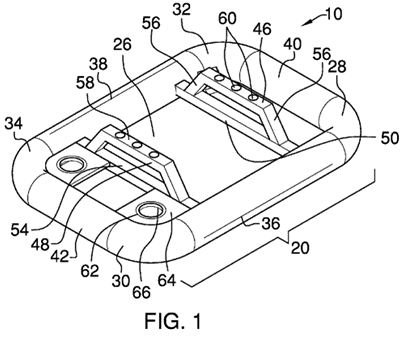The US Court of Appeals for the Federal Circuit affirmed the Patent Trial & Appeal Board’s rejection of a proposed reissue claim for being broader than the original claim, denying the inventors’ argument that the analysis should focus on the intended scope of the original claim rather than the actual scope. In re Kostić, Case No. 23-1437 (Fed. Cir. May 6, 2025) (Stoll, Clevenger, Cunningham, JJ.)
Miodrag Kostić and Guy Vandevelde are the owners and listed inventors of a patent directed to “method[s] implemented on an online network connecting websites to computers of respective users for buying and selling of click-through traffic.” Click-through links are typically seen on an internet search engine or other website inviting the user to visit another page, often to direct sales. Typical prior art transactions would require an advertiser to pay the search engine (or other seller) an upfront fee in addition to a fee per click, not knowing in advance what volume or responsiveness the link will generate. The patent at issue discloses a method where the advertiser and seller first conduct a trial of click-through traffic to get more information before the bidding and sale process. The specification also discloses a “direct sale process” permitting a seller to bypass the trial and instead post its website parameters and price/click requirement so advertisers can start the sale process immediately.
The independent claim recites a “method of implementing on an online network connecting websites to computers of respective users for buying and selling of click-through traffic from a first exchange partner’s web site.” The claim requires “conducting a pre-bidding trial of click-through traffic” and “conducting a bidding process after the trial period is concluded.” A dependent claim further requires “wherein the intermediary web site enables interested exchange partners to conduct a direct exchange of click-through traffic without a trial process.”
The patent was issued in 2013, and the inventors filed for reissue in 2019. The reissue application cited an error, stating that the “[d]ependent claim [] fails to include limitations of [the independent] claim,” where the dependent claim “expressly excludes the trial bidding process referred to in the method of [the independent] claim,” which would render it invalid under 35 U.S.C. § 112. To fix the error, the inventors attempted to rewrite the dependent claim as an independent claim that omitted a trial process.
The examiner issued a nonfinal Reissue Office Action rejecting the reissue application as a broadening reissue outside of the statutory two-year period. The examiner found that the original dependent claim is interpreted to require all steps of the independent claim, including the trial period, and further to require a direct sale without its own trial, beyond the trial claimed in the independent claim. The inventors attempted to rewrite the dependent claim as the method of independent claim with “and/or” language regarding the trial process versus direct to sale process. The amendment was rejected for the same reasons. The Board affirmed on appeal.
Whether amendments made during reissue enlarge the scope of [...]
Continue Reading
read more


 Subscribe
Subscribe



